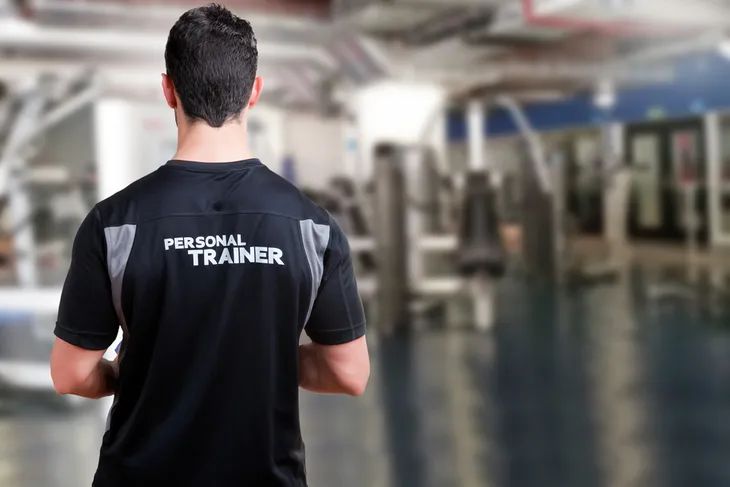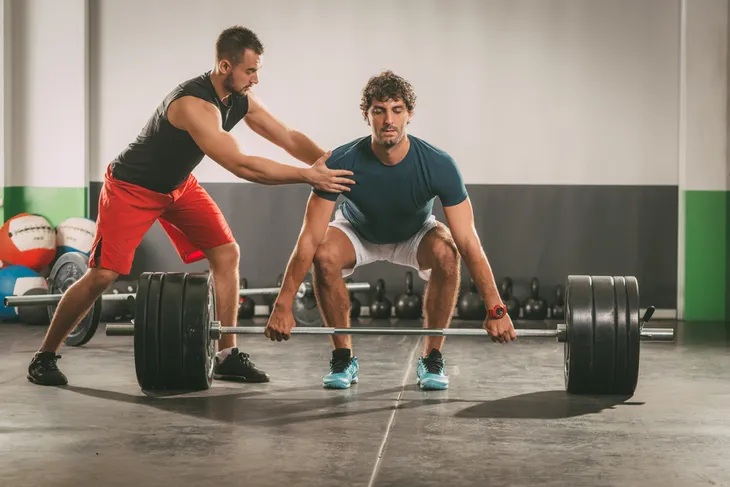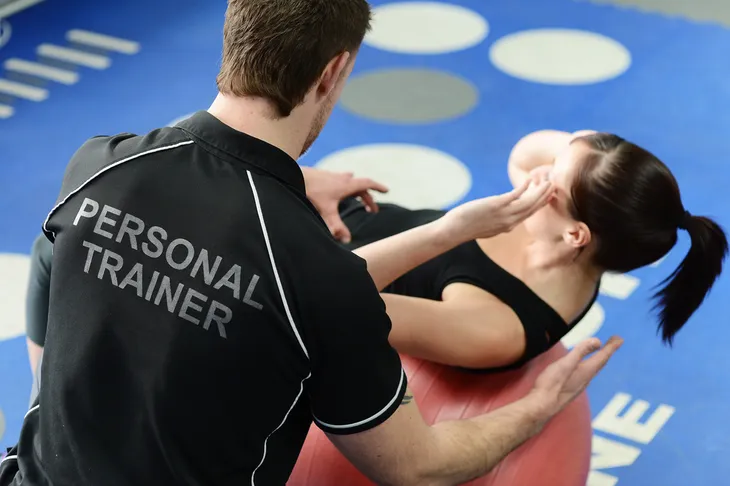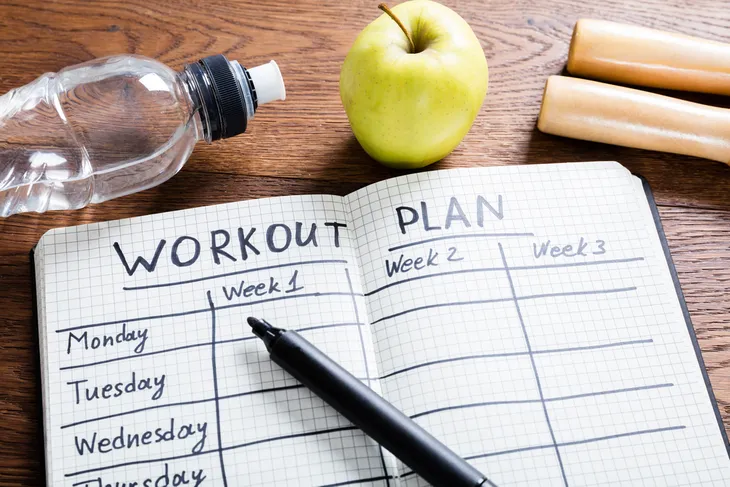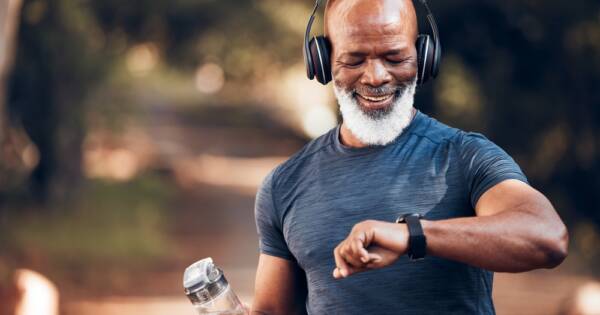The field of personal training and fitness leadership remains a bit of a mystery when one is choosing to hire a personal trainer. Sadly, there is no law that prevents anyone from hanging a shingle on their door and calling themselves a personal trainer, counsellor, or nutritionist. Some trainers may be formally educated and have a formal education in kinesiology while others may have a certificate in personal training (and not all certificates are created equal). From on-line courses and one day workshops to certificates that take up to one year to complete, unless we are vigilant and informed, we may be placing our health and well-being in the hands of the untrained and inexperienced.
Below are 10 important questions to ask a potential personal trainer before signing on that dotted line with the expectation of looking like an “after” picture in less than 8-12 weeks…
1. Is This Trainer Certified?
Personal training certifications are definitely not created equal. From nationally and globally recognized certifications (like the American Council on Exercise) to local courses offered through fitness centers, it is important for the consumer to have an awareness of the differences. While some offer a weekend training event from start to finish, others may create a step by step process expanding a year in length.
The important thing to consider is the quality of trainer education in exercise science, program design, biomechanics, and the like. The longer the training process the more experience and practice the trainer may have with designing, implementing, and monitoring exercise.
2. Does This Trainer Hold a Degree in Exercise Science?
It used to be that there were a small handful of personal trainers with formal education but, today, it appears more like the rule than the exception. The most common degrees relate to kinesiology (the study of human movement), human performance, or exercise science and physiology.
Those formerly trained in kinesiology will be well versed in exercise physiology, health and wellness, biomechanics, exercise prescription and may have specialised in particular populations such as the older adult, cardiac rehabilitation, or sports specific training and athletics. Additionally, they will have memberships in professional governing bodies that oversee the continuing education of the trainer.
3. Does This Trainer Focus on Both Exercise Science and Psychology?
It’s one thing to prescribe exercise and another to do it in a way that is conducive to the “stick-with-it-ness” of the client. Research has suggested that the average, novice exerciser will fall off the proverbial treadmill within six months of starting a new program. If we are ready to invest our money in a professionally designed program, the least we can expect is a program that enhances our adherence and, in turn, fitness success.
There are specific considerations a trainer must make when designing a program for a novice exerciser. For example, it is imperative not to overwhelm a novice exerciser with a 4-5 day a week exercise regime. From focusing on enjoyment, needs, values, goals, and lifestyle there is much to consider when creating a program and our trainer needs to understand this.
4. Is This Trainer the Right Fit?
It is important that we find a trainer that not only fits our philosophy of health and well-being but our personality. If the personal trainer doesn’t fit, our success in keeping up the exercise (while holding back the desire to cancel our next training session) will begin to suffer significantly.
If we enjoy laughter and fun in our relationships but are working out with a more serious, “no-nonsense” trainer, each session will become drudgery. We want to set ourselves up for success and look forward to our next workout session. Finding someone we enjoy (a.k.a. to be ordered around by) is the key to a happy workout.
5. Is this Trainer Able to Cater to My Needs?
Before the first meeting, it is vital to become aware of what we need in a trainer and fitness program. Do we want to run our first marathon? Do we want to look good naked? Do we want to be strong enough to pick up our first grandchild?
If our goals relate to marathons we must be sure that our trainer has experience and training in the areas of program design, progression, injury prevention, and biomechanics for running. Don’t be fooled by a fitness trainer personal running experience. Just because one runs does not mean one knows how to train.
6. Does This Trainer Take a Healthy Approach to Exercise?
Although this may be more a personal choice, the majority of people are looking for guidance and a fitness program that will strengthen our bodies and focus on better health down the road. Adopting an exercise injury is, most likely, not on anyone’s list of fitness goals (unless one is looking for a good excuse to drop out).
In the field of personal training, there are many trainers with a passion for exercise. So much so they may demonstrate a penchant for over exercise (and even exercise abuse) in their personal training regimes. To achieve a healthy balance, it is vital to find a trainer that understands the role exercise does (and does not) play in enhanced health and well-being.
7. Does This Trainer Make Promises?
There is so much competition for our business; many trainers have to set themselves apart from the crowd by establishing specialty programs, products, and promises. Beware of the trainer who identifies themselves as an “expert” while making promises of immediate, amazing, and easy results (or any promises for that matter).
There are so many uncontrollable factors that influence our weight, performance, and muscle development that no one (unless he/she has little understanding of training) can make any promises. It is the well-educated trainer that will approach our needs, desires, and hopes in a respectful, yet cautious, way while delivering the service we paid for.
8. Does This Trainer Accommodate for “Real Life”?
Many times a client pays the money for a fitness program only to receive something that doesn’t accommodate for “real life” events. From family and work demands to travel and big life events, a fitness program must be able to ebb and flow with our lives.
Before any exercise program can be designed, it is crucial that we work with our trainer to integrate our schedules and realistic time availability into our exercise program. If we overlook this important step, we may find ourselves with a very expensive work out plan on paper (lying in the recycle bin with the junk mail).
9. What Clientele Does This Trainer Serve?
Although many personal trainers tend to be open to all clients, others tend to lean towards a certain demographic or clientele. It may be that one trainer works with older adults while another tends to focus on training elite athletes.
It is important to ask our potential trainer questions relating to their desired client as a way to ensure we will receive the appropriate training. Should a novice, sedentary, 50-something man hire a trainer focused on training elite athletes chances are good this client will not only end up falling off the wagon, but get injured in the process.
10. Does This Trainer Sell Other Products?
Making a decent living as a personal trainer can be a tough haul and many may opt for selling or representing other products (such as fitness gear and nutritional supplements). Not only does this have the potential to cause trainer bias towards these products, it may lead us to purchasing stuff we don’t really need.
Whether the trainer sells other products or not isn’t the issue. The question lies in her or his ability to draw and maintain professional boundaries between the services we have agreed to purchase and those we aren’t interested in.

